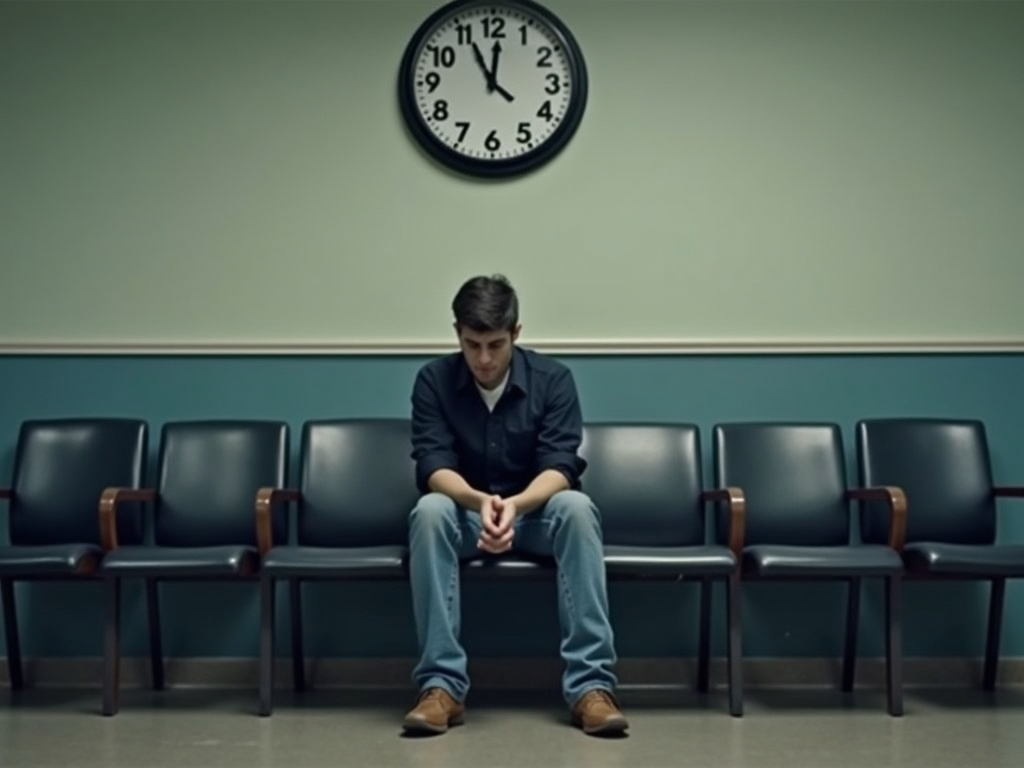Understanding the Emotional Journey of IVF
March 15, 2025, 7:53 a.m.
The emotional journey of IVF is a rollercoaster of hope, anxiety, and resilience. This article explores the personal experiences and challenges faced by individuals undergoing IVF, offering insights and support for those on a similar path.
The Decision to Start IVF
The decision to start IVF is often a mix of hope and fear. Couples or individuals facing infertility may see IVF as a beacon of hope, a chance to fulfill their dream of having a child. However, the process is daunting. It involves medical procedures, financial commitments, and emotional vulnerability. The fear of failure looms large, but so does the hope for success. This duality sets the stage for the emotional journey ahead. Many people describe this moment as standing at a crossroads, where the path forward is uncertain but necessary.

The IVF Process: A Step-by-Step Emotional Guide
The IVF process itself is a series of steps, each with its own emotional weight. First, there's the preparation phase, which includes hormone injections to stimulate egg production. These injections can be painful and require daily administration, often leading to mood swings and physical discomfort. The egg retrieval is a minor surgical procedure that, while routine, can cause anxiety due to the invasiveness and the hope pinned on its success. After retrieval, the fertilization and embryo development stages are monitored closely, with each update bringing a mix of anticipation and worry. The embryo transfer, often described as a sacred moment, is when the embryo is placed into the uterus. This is followed by the two-week wait, a period of intense emotional strain as individuals await the pregnancy test results.
Coping with Uncertainty
During this journey, uncertainty is a constant companion. Questions like "Will the eggs be healthy?" "Will the embryos develop properly?" and "Will the transfer be successful?" add to the emotional burden. The lack of control over the outcome can be particularly challenging for those who are used to planning and achieving their goals. Many find themselves riding a rollercoaster of emotions, from optimism after a good appointment to despair after a setback. It's crucial to acknowledge these feelings and find healthy ways to cope, such as journaling, talking to a trusted friend, or engaging in relaxing activities.

The Role of Support Systems
Support systems play a vital role in navigating the emotional landscape of IVF. Partners can provide emotional support, but they may also be struggling with their own feelings. Open communication is key to ensuring both parties feel heard and supported. Family and friends can offer encouragement, but it's important to set boundaries if their involvement becomes overwhelming. Support groups, both online and in-person, can be invaluable. Connecting with others who understand the unique challenges of IVF can provide comfort and practical advice. Professional counseling, whether individual or couples therapy, can help process complex emotions and develop coping strategies.
Fertility Preservation: A Proactive Approach
For some, fertility preservation through egg freezing is a proactive step that can alleviate some emotional stress. By freezing eggs, individuals can preserve their fertility for the future, which may reduce the pressure of time constraints during IVF. This option is particularly appealing for those who are not ready to start a family but want to keep their options open. However, the decision to freeze eggs also comes with its own set of emotions, including the hope for future possibilities and the acknowledgment of current challenges. It's a personal choice that requires careful consideration and often involves financial and emotional investments.

The Impact of Infertility on Self-Esteem and Relationships
Infertility can take a toll on self-esteem and relationships. Feelings of inadequacy or guilt are common, especially in cultures where parenthood is highly valued. Individuals may question their worth or feel like they are letting their partner down. The strain on partnerships can be significant, with couples navigating not only their own emotions but also each other's. It's important to communicate openly and honestly, expressing needs and fears without blame. Many couples find that their relationship strengthens through the shared experience, but it's also okay to acknowledge when additional support, such as counseling, is necessary.
Finding Hope and Resilience
Despite the challenges, the IVF journey can also be a path to personal growth and resilience. Many individuals discover inner strength they didn't know they had. They learn to advocate for themselves, asking questions and making informed decisions about their treatment. They develop coping mechanisms that serve them in other areas of life. Some find a renewed sense of purpose or a deeper connection with their partner. Sharing these stories can inspire others and provide a sense of solidarity, reminding those on the journey that they are not alone.

Common Emotional Challenges and Coping Strategies
Common Emotional Challenges
- Anxiety and Stress: The uncertainty of the process can lead to heightened anxiety. Techniques like deep breathing, meditation, or yoga can help manage stress levels.
- Grief and Loss: Each failed cycle can feel like a loss, triggering grief. It's important to allow yourself to mourn and seek support.
- Isolation: Infertility can feel isolating, especially if friends and family don't understand. Connecting with others through support groups can alleviate this feeling.
- Financial Strain: The cost of IVF can add to the emotional burden. Exploring financial options or seeking assistance programs can help.
Coping Strategies
- Mindfulness and Relaxation: Practicing mindfulness can help stay present and reduce anxiety. Apps or classes can guide you through techniques.
- Physical Activity: Regular exercise can boost mood and reduce stress. Even a daily walk can make a difference.
- Creative Outlets: Engaging in hobbies or creative activities can provide a distraction and a sense of accomplishment.
- Professional Help: Therapists specializing in fertility issues can offer tailored support and coping strategies.

Beyond IVF: Emotional Considerations
It's also important to recognize that the emotional journey doesn't end with a successful pregnancy. Many individuals experience anxiety during pregnancy after IVF, fearing complications or loss. Continued support and self-care are crucial during this time. Additionally, for those who do not achieve pregnancy through IVF, exploring other paths to parenthood, such as adoption or surrogacy, can be emotionally complex but ultimately rewarding.
Conclusion
The emotional journey of IVF is complex and deeply personal. It involves navigating a landscape of hope, fear, uncertainty, and resilience. By understanding and acknowledging these emotions, individuals can better prepare themselves for the challenges ahead. Support from loved ones, professional guidance, and self-care are essential components of this journey. For those embarking on or currently undergoing IVF, know that you are part of a community that understands your struggles and celebrates your victories, no matter how small. Embrace the journey with an open heart, and trust that each step, no matter how difficult, is a step toward your dream.